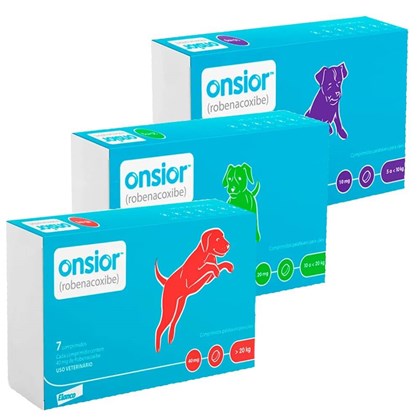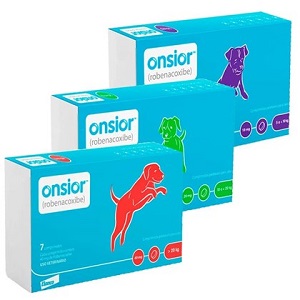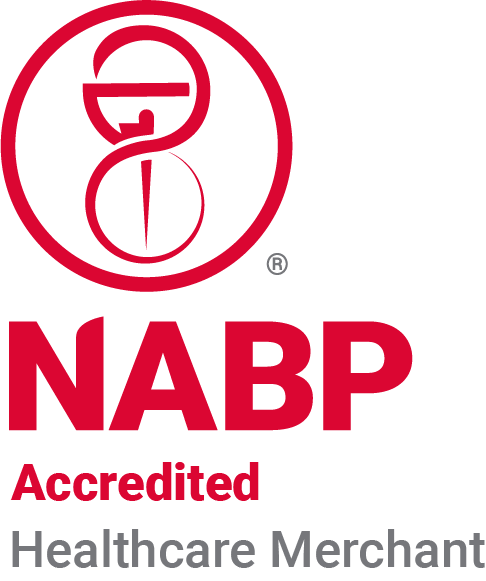Robenacoxib is a cyclooxygenase-2 (COX-2) selective, tissue selective, nonsteroidal anti-inflammatory drug (NSAID) of the coxib class.
Do not administer to animals with gastrointestinal ulceration or to dogs with known hypersensitivity to robenacoxib. Do not administer concomitantly with corticosteroids or other NSAIDs. Do not administer to cats (use Onsior 6 mg Tablets for Cats).
Control of pain and inflammation associated with chronic osteoarthritis and orthopaedic and soft tissue surgery in dogs.
Dosage and Administration:
Onsior Tablets should be given on an empty stomach or with only a small amount of food. Onsior Tablets are flavoured and are taken voluntarily by most dogs. If a dose is missed, it should be administered as soon as remembered, and the following dose given the next day at the usual dosing time. The recommended dose rate and regimen should not be exceeded. Tablets should not be divided or broken.
Administer orally once daily at a dosage of 1 mg/kg bodyweight with a range of 1 to 2 mg/kg. For long term treatment, once clinical response has been observed, the dose of Onsior can be adjusted to the lowest effective individual dose, as the degree of pain and inflammation associated with chronic arthritis can vary over time.
Regular monitoring should be undertaken by the veterinarian. Soft tissue or orthopaedic surgery. Initiate treatment with a single dose of Onsior Injection administered subcutaneously before commencement of surgery, for example around the time of induction of general anaesthesia or initiation of supportive fluid therapy, at a dose of 2 mg/kg (1 mL/10 kg bodyweight).
If treatment is to be continued, Onsior Tablets may be administered orally at 1 mg/kg bodyweight, dose range 1 to 2 mg/kg, once daily for 12 days.
Precautions:
The safety of Onsior Tablets in dogs weighing less than 2.5 kg, dogs younger than 3 months of age, or in breeding, pregnant or lactating dogs has not been established. Caution should be exercised with the use of Onsior in dogs with impaired function of the heart, kidney or liver, or that are dehydrated, have low circulating blood volume or low blood pressure. If use cannot be avoided, these dogs require careful monitoring.
Use Onsior under strict veterinary monitoring in dogs at risk of gastrointestinal ulceration or if the dog has previously displayed intolerance to other NSAIDs. Onsior should not be given to animals when blood loss or decrease in blood pressure during surgery may decrease renal or gastrointestinal perfusion. Supportive fluid therapy is therefore recommended during surgery.Before administration of any NSAID, it is advisable to conduct a physical examination and appropriate laboratory tests (including liver enzyme levels) to establish pretreatment parameters.
During prolonged therapy, appropriate re-evaluation and monitoring of body functions tests should be undertaken periodically as deemed appropriate for the individual patient. The dose for prolonged therapy in dogs should be as close to the bottom of the dose range as is compatible with clinical response. Therapy should be discontinued if the dog shows clinical signs such as anorexia, apathy, vomiting or a marked increase in any haematological or serum biochemical abnormalities.
Storage:
Store below 25°C (air conditioning).


